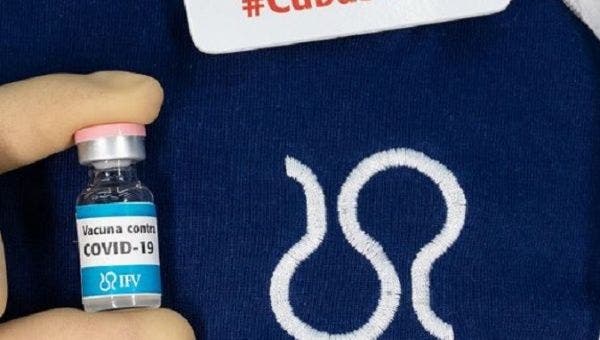COVID-19 Vaccine: Cuba's Among Top 30 Worldwide Candidates
Telesur | Thursday, 20 August 2020 | Click here for original article

Cuban science authorities confirmed on 20 August that the vaccine candidate FINLAY-FR-1 would be commercialized under the name of SOBERANA once it finishes the clinical trials successfully, which are slated to start on August 24.
During an interview with national television program Mesa Redonda, Finlay Vaccine Institute (IFV) director Vicente Vérez explained that Cuba's vaccine candidate is the number 30th to receive approval to go on clinical trials among 200 vaccines candidates worldwide.
"This is a milestone for Cuba's science, being able to come up with a vaccine candidate that's qualified to go on clinical trials and to achieve that in only 90 days", Vérez said as the average time to develop a vaccine candidate takes 10 to 15 years.
On the other hand, Yuri Valdéz Balbín deputy director at IFV detailed that the Soberana vaccine candidate is based on the protein RBD, an antigen that acts as a "key" to access the virus. This protein requires mammals cells based technology to be produced, something that Cuba's's Center for Molecular Immunology has widely develop for other products such as cancer vaccines.
The scientist remarked that the speedy development of this vaccine candidate was possible because, unlike other circumstances, in the context of the COVID-19 pandemic, all scientific information can be accessed for free. Furthermore, Cuba's decade's long experience in vaccine production allowed it to use existing platforms rather than start from cero.
The research director at IVF Dagmar García noticed that during the preclinical trial in mouses, rabbits, and hamsters, it emerged that seven days after the firsts dose, the levels of specifical antibodies against the RBD protein rose considerably. In this sense, the scientist explained that the capacity to generate particular antibodies against the virus only seven days later is one of the most outstanding qualities of this vaccine candidate.
The platform for the SOBERANA vaccine was created based on the Cuban Meningogococcal Vaccine, which has been used since its creation in 1989. In this sense, and unlike some medical approaches worldwide, Cuban scientists decided that the clinical trials will use the Meningococcal Vaccine for the control groups.
"This #Vaccine is the first in Latin America and number 30 in the select group of specific vaccines against # COVID19 in clinical trials worldwide. A feat of #CienciaCubana and @PresidenciaCuba."
It is a medical practice to divide the population during the clinical trials and apply the vaccine to one group and a placebo to the other to verify its efficacy. According to the scientist García, in Cuba, the clinical trials will include 676 people; one group will receive the SOBERANA vaccine while the other will receive the Meningococcal vaccine. The two intramuscular doses will minister in 28 days period.
The other 29 worldwide vaccine candidates authorized by its national regulatory entity to advanced to the clinical trials belong to a total of 14 countries, including the U.S. Russia, Germany, England, Australia, and Japan. Cuba is the first Latin American and underdeveloped country to reach this stage.
Cuba's Regulatory Authority for Medicines, Equipment, and Medical Devices (CEDMED) gave the final approval to the vaccine candidate, after which it was registered in the Cuban Public Registry of Clinical Trials on August 13. The CEDMED is the first Latin American entity of its kind to receive the category of competent authority to evaluate vaccines by the World Health Organization.
On May 19, Cuba's President Miguel Díaz-Canel held a meeting with the IVF team and urged them to work on the vaccine as "it is a matter of sovereignty for our country." Following this, he called the group and decided to name the clinal trials as SOBERANA O1. However, once the news broke, the people started to call the vaccine SOBERANA, so they decided that would be its trade name.






